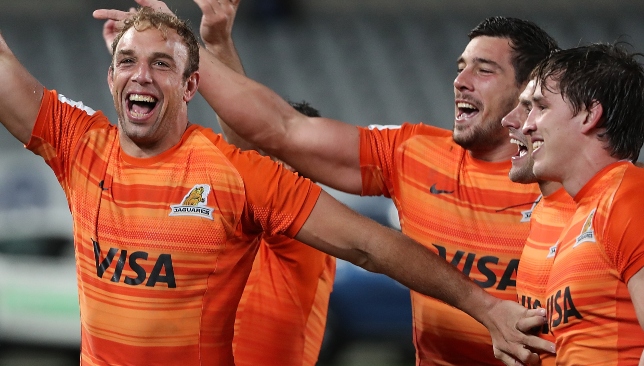
It is just under a year since the Jaguares blitzed the Brumbies in Buenos Aires to reach their maiden Super Rugby final.
Fans cried around Estadio Jose Amalfitani. Players smiled with joy. It was a historic day. Another significant chapter to add to the continued development of Argentinian rugby.
For a franchise founded just three years before, it showed signs of remarkable progress to be dining at the top table of one of the world’s premier club competitions.
Reaching the final was an achievement in itself, especially for a Jaguares side built from almost nothing in 2016. And although they fell at the final hurdle against a strong Crusaders team, it represented monumental strides for the local and South American game.
Backing it up again this season was going to be a primary target, however, with the Covid-19 outbreak suspending the Super Rugby campaign in March, it has now put the Jaguares’ short but fruitful existence in doubt.
While New Zealand are in the midst of their own domestic competition, and Australia are preparing to launch their own tournament on July 3, Argentina is still under lockdown for another 10 days.
South African teams are rumoured to be joining their countrymen the Cheetahs and Southern Kings in Europe’s PRO14 to be in line with European time zones, leaving the Jaguares in a realm of uncertainty going forward.
Involvement in the Currie Cup could come into consideration, with the Jaguares development team dominating the Currie Cup First Division last year.
Promotion into the Currie Cup Premier Division would be an appropriate measure to accommodate a full-strength Jaguares outfit.
However, travel between Argentina and South Africa could become rigorous – it takes 8.5 hours to fly from Buenos Aires to Cape Town – and costly.
One possible option would be to join the newly-created Superliga Americana de Rugby that includes compatriots Ceibos, from Cordoba, as well as teams from Brazil, Chile, Colombia, Paraguay and Uruguay.
Without regular exposure to clubs from any of the three SANZAAR nations though, the quality of competition the Jaguares are exposed to diminishes.
Imagine going from beating glittering Kiwi outfits like the Blues and the Chiefs last season to taking on Olimpia Lions from Paraguay or Chile’s Selknam. It would be a cricket score.
Yes, the Superliga Americana de Rugby is an opportunity to play matches and keep the players interested, but Jaguares would be on a different level to any of those Southern American club teams.
For now, players have been told they are free to explore their options overseas. Two of Argentina’s leading lights Emiliano Boffelli and Julian Montoya are rumoured to be in talks with French clubs, while Julian Montoya, Jeronimo de la Fuente and Guido Petti have also been linked with moves to Europe.
It would be a major setback to lose key figures, however, in a short career, you have to follow the opportunities, given the lack of certainty around this calendar year.

For a team that has proven its mettle in Super Rugby by continually soaring up the table year-on-year since 2016, this would be a disappointing way to bow out.
An indication of Jaguares’ improvements over their first four years together saw them climb from 13th, 8th, 7th and second respectively. They recorded seven successive victories at one point last term, including 11 wins from their last 12 matches. A force to be reckoned with on their day.
Hope lies in that Argentina are locked into SANZAAR’s upcoming broadcast deal that runs from 2021 to 2025, featuring a 14-team Super Rugby competition including the Jaguares.
The only issue, for now, is the economic and travel implications that have come with the pandemic could alter the course of action for 2021.
It is too early to predict what could happen over the coming months. However, removing the Jaguares means rugby in Argentina would be taking a giant step backwards from the immaculate work that has cemented its reputation as an established tier-one nation. The Pumas were World Cup semi-finalists in 2007 and 2015.
The franchise’s existence offers a pathway to professionalism for players both in Argentina and across South America, and provides an opportunity to test themselves against the best players in the world.
At this point, the Jaguars players are still waiting for a solution and some clarity as to what the year ahead holds. But with uncertainty worldwide, it is anyone’s guess what could unfold.
One thing for sure is if the Jaguares are left behind by New Zealand, Australia and South Africa, it would be to the detriment of the domestic game in Argentina and South America.